-
About
- About Listly
- Community & Support
- Howto
- Chrome Extension
- Bookmarklet
- WordPress Plugin
- Listly Premium
- Privacy
- Terms
- DMCA Copyright
- © 2010-2025 Boomy Labs


 Kelly Messerly
Kelly Messerly
Listly by Kelly Messerly
List of books, articles, websites, and research that will validate your giving kids time to read, letting them choose their own books, and providing quality, current, and popular books for them to read.
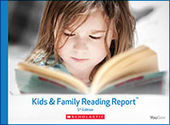
A national survey of children and their parents exploring attitudes and behaviors around reading books for fun

A rave review for Penny Kittle's book, Book Love. A Must Read for HS teachers.
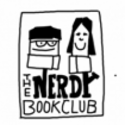
"A community of readers: this online space was designed to give us a home to share that love of reading with others as well as to organize voting and announcing winners of our First Annual Nerdies Book Awards."
Lots of personal stories about the power of YA books for kids, book recommendations, and general book conversation.

It's like we do not trust our high-achieving students to move themselves into complex texts. We focus on the literature instead of the literacy. And we rob children who already have a grasp of language, who already have many of the study skills they need to pass English classes, with the opportunities to grow.
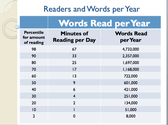
The numbers make sense. Reading matters and we are all responsible! #satchat pic.twitter.com/6hg9VGAWRt
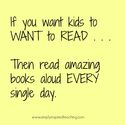
Without seeing a snowboarder in action on the slopes, a child is unlikely to decide he'd like to become a snowboarder. Without hearing an accomplished violinist perform, a child has little reason to aspire to play the violin. Without regular opportunities to hear accomplished readers bring great books alive, a child won't have the chance...

A great visual, summary of The Book Whisperer by Donalyn Miller
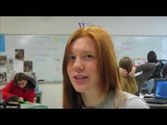
Do you students actually read what is assigned in class? Dozens of students explain why they don't read what is assigned and how they still pass English and literacy classes by using CliffNotes and the internet. <---Argument for student choice! We teacher students, not titles.
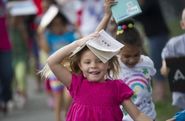
"For decades, researchers have been suggesting that a little structured fun with books can help kids learn to appreciate them, and that kids who like to read tend to become better readers. This research has led many in teaching to advocate for free reading during the school day."

In this digital age it is more important than ever to instill in our children a desire to read and to give them the understanding of the impact reading can have on the rest of their lives. The Teaching Children the Value of Reading Infographicis illustrates the value of the written word and how reading can pave the way to success.
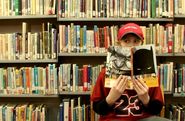
A teacher blog about young adult literature. A Spotify playlist of favorite tunes of a young adult fiction writer A classic novel turned graphic novel. A tumblr campaign promoting diverse books. These are just a few of the ways educators, publishers, authors and illustrators are trying to reach teen readers and turn them on to reading.

Perhaps not appropriate, but I love it. The new Bell's TV commercial features a father whose intrepid spirit demonstrates just what it takes to be a true Man of Character.

Because you can always find more inspiration and links to more articles, etc. by joining in educational Twitter chats. This will tell you how.

Read-i-cide n: The systematic killing of the love of reading, often exacerbated by the inane, mind-numbing practices found in schools. Reading is dying in our schools. Educators are familiar with many of the factors that have contributed to the decline - poverty, second-language issues, and the ever-expanding choices of electronic entertainment.

Great article by Donalyn Miller (Feb. 8, 2015) rounding up all the research: "Multiple studies since 1977 have identified what helps children learn to read well and become lifelong readers, but the general public and many educators remain ignorant of this research."

Reading with pleasure, and especially reading fiction, is far important than we have ever imagined. If I were a father living in poverty, I would dedicate myself to encouraging my children to be engaged readers of relevant, age-appropriate fiction.

Hear from Nancie Atwell, Cris Tovani (English/Reading teacher and the author), Stephen Krashen (Emeritus Professor of Education at the University of Southern California), and Richard Allington (Professor of Literacy Studies at the University of Tennessee). From Education Week. You have to register to read the articles. You'll get access to three free articles a month OR you can subscribe (which I think is $29/6 months).

Nancie Atwell wins $1 million award dubbed "the Nobel Prize for Teaching."
"I was an English major," she said. "I loved literature. I cherished great books, but my kids weren't reading enough. Not nearly enough."
She began gradually letting go of assigned texts and started building "an excellent classroom library" of books, fiction and non-fiction, that appealed to students even if they didn't appeal to adults. Her methods became popular just as schools in the U.S. were moving toward more standardized, test-driven methods of instruction — a trend she sees gaining steam in schools' haste to adopt standards called Common Core, new benchmarks in language arts and math.
"I worry that educational bureaucrats have a problem with pleasure," she said, "that if kids are enjoying what they're doing, it can't be rigorous or worthwhile."

Welcome Welcome to a list of 200+ active Twitter chats for educators. Please visit the tabs below for chats organized by each day of the week. If you are a moderator of an edchat please update this epic list with your chat, description, and especially weekly topics.
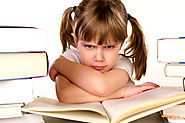
As teachers, we want students to read, read a lot, and LOVE to read. So, we assign 20 minutes of reading for homework and hand out reading logs for students to complete and return with a parent's signature. Then, we despair when kids tell us they "hate" reading.
There is the eternal debate on the canon in the high school English class: clearly there are texts that "every American student should read." Clearly there is a requirement for cultural competency, a sense that people need some common understanding of certain texts....but make those texts relevant for your students.
